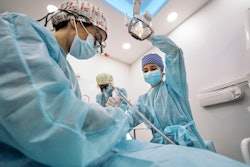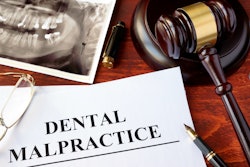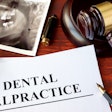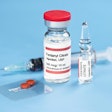
About 1% of medical malpractice cases filed against U.S. oral and maxillofacial surgeons stem from temporomandibular joint (TMJ) surgeries, according to a recently published study in the Journal of Oral and Maxillofacial Surgery.
Most medical malpractice practice cases filed against oral and maxillofacial surgeons were related to dentoalveolar and dental implant procedures. Therefore, the risk of potential lawsuits should not factor into clinicians' decisions to stop performing TMJ operations, the authors wrote.
"Medical malpractice claims against oral and maxillofacial surgeons for TMJ operations are very uncommon," wrote the authors, led by Dr. Mark A. Green of the department of plastic and oral surgery at Boston Children's Hospital in Massachusetts (J Oral Maxillofac Surg, April 14, 2022, Vol. 80:7, pp. 1153-1157).
Medical malpractice affects the decisions that clinicians make and contributes to defensive medicine, which is when something such as a medical test is performed to reduce the doctor's liability but likely won't improve a patient's outcome.
In a previous survey, 93% of physicians who worked in six high-risk surgical specialties reported having patients undergo unnecessary tests, overusing healthcare resources, avoiding high-risk patients, and having a limited scope of practice to minimize their liability risk. In 2008, the indirect cost of defensive medicine cost about $45.6 billion, according to the study.
To explore medical malpractice claims involving TMJ operations of arthrocentesis, arthroscopy, arthroplasty, and total joint replacement that were performed by oral and maxillofacial surgeons, the authors completed a retrospective cross-sectional study. Claims data were collected from OMS National Insurance Company, a malpractice insurance company that is owned by oral and maxillofacial surgeons and represents 5,000 surgeons in the U.S.
From January 1, 2016, to December 31, 2020, 1,455 medical malpractice claims were filed against U.S. oral and maxillofacial surgeons. Claims stemming from postoperative TMJ complications from non-TMJ surgeries were not included in the study.
Of the closed claims, 14 (0.96%) were related to TMJ operations. The most common error that was alleged was improper performance. Only two of these cases, both of which alleged improper performance, were settled with payments. However, none of the TMJ claims received a court-adjudicated payout, the authors wrote.
Most of the claims were filed against surgeons for dentoalveolar and dental implant-related procedures. There were 1,000 cases (68.7%) related to dentoalveolar procedures, and there were 226 cases (15.5%) related to dental implants. Of the dentoalveolar cases, about 68.5% resulted in payments, and about 17.8% of the dental implant cases resulted in payments, they wrote.
The study had limitations, including that the study sample did not represent every U.S. oral and maxillofacial surgeon. OMS National Insurance Company represents about 88% of American Association of Oral and Maxillofacial Surgeon members, but there is selection bias related to those clinicians covered by a different professional liability insurance. Furthermore, medical malpractice claims against surgeons who perform TMJ surgeries at academic institutions may be underreported, the authors wrote.
Since surgeons are more likely to face claims for more commonly performed procedures, such as dental implants and extractions, potential litigation should not be a factor in whether a practice excludes TMJ surgeries.
"(Therefore,) defensive medicine is not advised and limiting one's practice by avoiding TMJ operations is not supported," Green and colleagues concluded.
Disclosure: One of the study authors, Dr. Louis Mercuri, is a clinical consultant for Stryker/TMJ concepts in Ventura, CA.




















